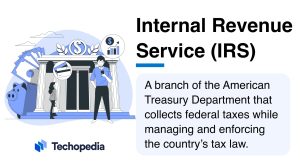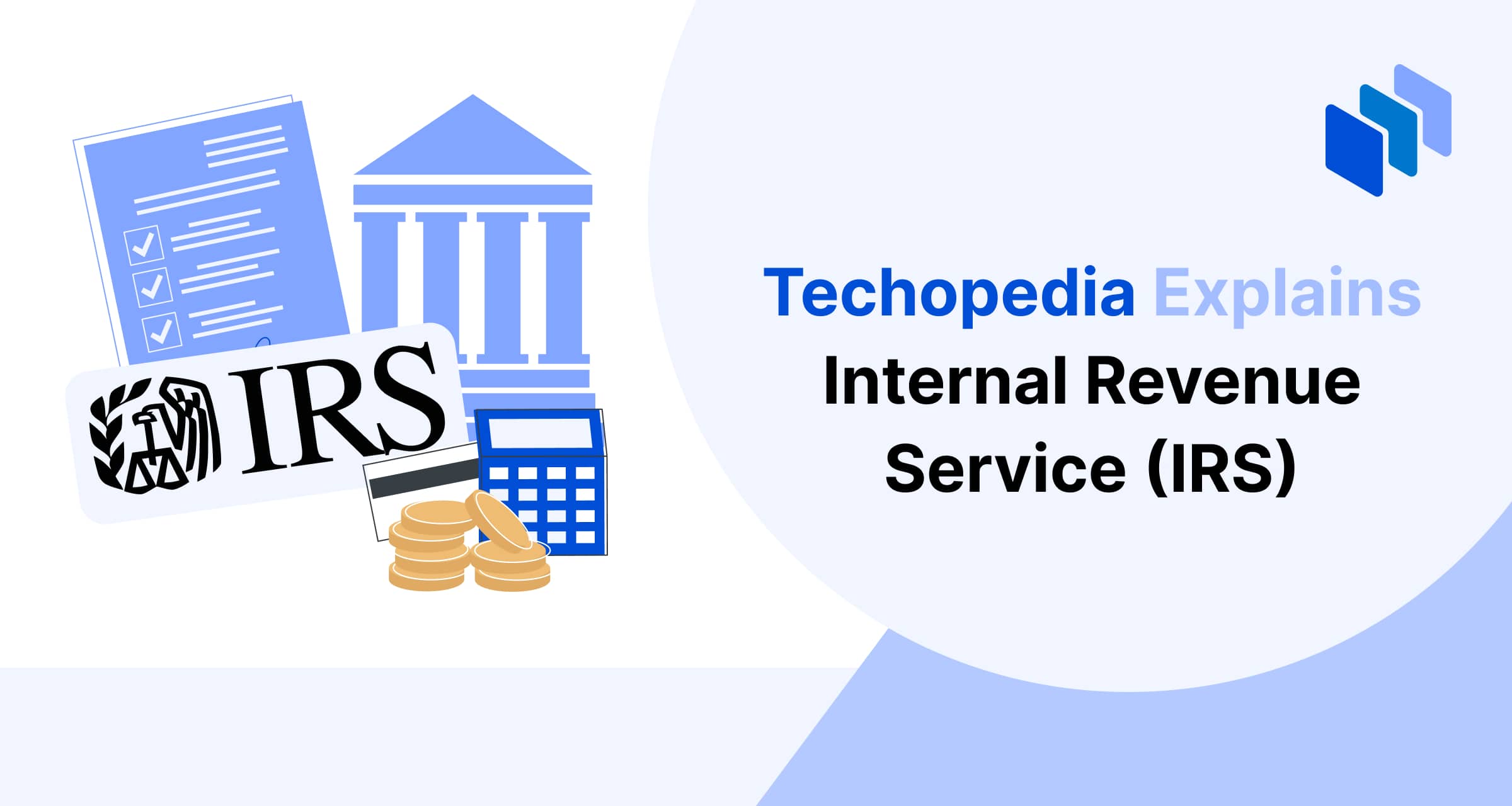What is the Internal Revenue Service (IRS)?
The Internal Revenue Service (IRS) is a branch of the U.S. Treasury Department that collects federal taxes while managing and enforcing the country’s tax law.

Key Takeaways
- The Internal Revenue Service is a branch of the United States Treasury Department.
- The IRS manages and enforces the country’s tax code while collecting federal tax revenue.
- The IRS dates back to the Civil War era but wasn’t given its name until 1952.
- When you file a return, the IRS coordinates with third-party financial data to determine whether your return is accurate and if you owe money or should receive a tax return for any given year.
- The IRS has changed its policies over the years through legislation passed by Congress and the president.
- Show Full Guide
IRS History
The IRS dates all the way back to 1862, when then Congress began collecting income tax in an effort to fund the ongoing Civil War. While it wasn’t called the IRS back then, this was the start of a federal system to collect revenue and support the country.
Here are some important historical events in the development of the IRS:
Who Owns the IRS?
The IRS is a government entity, and as such, isn’t owned by anyone. It is a branch of the Treasury Department and is run by the Commissioner of Internal Revenue.
How Internal Revenue Service Works
After filing your taxes, you might wonder, “What does the IRS do?”
Here is the process of how your tax return might be handled by the IRS:
- Your return is mailed or filed electronically and submitted to the IRS.
- The IRS logs a receipt of your return. Paper returns are scanned and manually inputted.
- Your basic identity information (name, address, social security number, etc.) is verified.
- Financial information on your tax return is compared to W-2 forms, 1099 forms, and other third-party data.
- If a discrepancy is found, the error may be corrected automatically, or the IRS may contact you to resolve the error or request more information.
- The IRS will calculate any overpayment or underpayment of taxes and either request additional funds or process payment back to you.
- If you have unusual deductions or high-income discrepancies, your return may be flagged for further review.
- Once all matters are settled, the IRS accepts your return as filed, closes the return, and retains the records in case they are needed for future inquiries.
What Does the IRS Do?
The IRS has several functions, each of which is important in managing the revenue of the United States of America:
IRS Mission
According to the IRS, its mission is to:
“Provide America’s taxpayers top-quality service by helping them understand and meet their tax responsibilities and enforce the law with integrity and fairness to all.”
Importance of IRS Logo
The IRS logo is that of an eagle holding scales. According to the agency, this symbol is important because of the values it represents:
What Taxes Does the Internal Revenue Service Manage?
The IRS manages all federal taxes for individual taxpayers and businesses in the United States.
This includes:
- Individual income tax
- Corporate income tax
- Self-employment tax
- Payroll taxes
- Unemployment tax
- Estate tax
- Gift tax
- Capital gains tax and more
How to Contact the IRS
You can get in contact with the IRS online, in person, or via their phone number.
For more information about how to contact the IRS, visit their website here.
The Bottom Line
According to the IRS definition, the government agency manages the United States tax code. This is why if you ever have an issue with your taxes, or are owed money from the federal government, you’ll receive a letter from the Internal Revenue Service.
While no one likes paying taxes, the IRS, along with other institutions like the Federal Reserve, is an important government institution that helps the country function efficiently and ensures businesses and individuals pay the taxes they owe.






